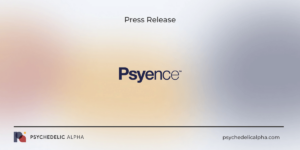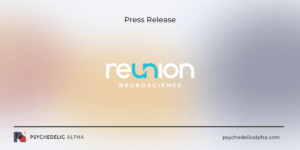Your Brief
Pharmather has filed an application with the FDA for Orphan Drug Designation, which is reserved for rare diseases.
The use-case in question is ketamine for the treatment of levodopa-induced dyskinesia, which is associated with Parkinson’s Disease.
Full Press Release Below
TORONTO, Oct. 20, 2020 (GLOBE NEWSWIRE) — Pharmather Inc., a wholly-owned subsidiary of Newscope Capital Corporation (“Pharmather” or the “Company”) (CSE: PHRM) and a specialty life sciences company focused on the research and development of psychedelic pharmaceuticals, is pleased to announce it has filed an application with the U.S. Food and Drug Administration (“FDA”) to receive Orphan Drug Designation (“ODD”) for ketamine in the treatment of levodopa-induced dyskinesia associated with Parkinson’s Disease (“LID-PD”).
“We are excited to announce our FDA ODD application submission for ketamine, as it would grant us special status and accelerate the development of ketamine to treat LID-PD, a significant unmet clinical need in Parkinson’s Disease,” stated Fabio Chianelli, CEO of Pharmather. “The FDA ODD application leverages established clinical research and intellectual property that we have exclusively secured for ketamine in LID-PD and it complements our strategy in pursuing an FDA investigational new drug application to conduct a Phase 2 clinical study in LID-PD later this year.”
The global Parkinson’s Disease market is expected to grow from USD $5 billion in 2019 to USD $7.5 billion by the end of 20251 and it is estimated that the potential market opportunity for LID-PD to be over USD $3 billion in the U.S. alone.
The FDA ODD would qualify ketamine for certain benefits and incentives, including seven years of marketing exclusivity, potential tax credits for certain activities, eligibility for orphan drug grants, and the waiver of certain administrative fees.
Promising Results with Ketamine in Parkinson’s Disease
Ketamine is an FDA-approved drug with a known safety profile. Prior clinical reports suggest that low-dose ketamine infusions are well tolerated and can improve pain and depression, both often comorbidities in Parkinson’s Disease patients.
Inventors Dr. Scott Sherman and Dr. Torsten Falk, both associate professors at the University of Arizona College of Medicine – Tucson, are working with Tech Launch Arizona to patent the results from preclinical data and five case studies in Parkinson’s Disease patients showing that low-dose sub-anesthetic ketamine infusion indicates tolerability, safety and the potential of long-term therapeutic benefit to reduce Levodopa-induced dyskinesia, improve on time, and reduce depression. 2-6
About Parkinson’s Disease
Parkinson’s Disease is a debilitating disorder that affects over 1 million people in the U.S. and more than 7 million people worldwide. There is currently no cure for Parkinson’s Disease, although some drug combinations are used to treat the disease symptoms.
Levodopa is the gold standard for Parkinson’s Disease treatment but features significant drawbacks, including the major side effect of dyskinesia and a loss of effectiveness over time. Approximately 50% of patients with Parkinson’s Disease will develop Levodopa-induced dyskinesia 4-5 years after the initiation of levodopa therapy, and this number rises to 80% after 10-12 years of levodopa treatment. LID may interfere with motor function, cause or aggravate pain and is known to worsen the quality of life significantly.
Individuals with Parkinson’s Disease may experience a host of non-motor symptoms such as autonomic dysfunction, psychiatric (depression), cognitive and sensory symptoms (pain). Therefore, there is an urgent need for alternative treatments and has been identified by the regulatory authorities, patient advocacy groups such as Michael J. Fox Foundation, and key opinion leaders as a substantial unmet medical need.
About FDA Orphan Drug Status
The Orphan Drug Act provides for granting special status to a drug or biological product to treat a rare disease or condition upon request of a sponsor. This status is referred to as orphan designation (or sometimes “orphan status”).
The FDA grants ODD status to products that treat rare diseases, providing incentives to sponsors developing drugs or biologics. The FDA defines rare diseases as those affecting fewer than 200,000 people in the United States at any given time. Due to small patient numbers, treatment for these rare diseases would not be considered economically feasible without government programs to support their economic viability.
About Pharmather Inc.
Pharmather Inc., a wholly-owned subsidiary of Newscope Capital Corporation (CSE: PHRM), is a specialty life sciences company focused on the research and development of psychedelic pharmaceuticals. Pharmather repurposes psychedelic pharmaceuticals, such as ketamine and psilocybin, for FDA approval to treat disorders of the brain and nervous system. Our team includes world-class strategic partners, advisors and a strong leadership team with a proven track record of success in drug development, business development and capital markets. Our goal is to advance the development of panaceAI™, our drug repurposing artificial intelligence platform, and our clinical product pipeline with ketamine and psilocybin in treatment of Parkinson’s Disease, depression, traumatic brain injury and stroke. Learn more at: pharmather.com and follow us on Facebook, Twitter and LinkedIn.
For more information, please contact:
Fabio Chianelli
Chief Executive Officer
Pharmather Inc.
Telephone: 1-888-846-3171
Email: info@pharmather.com
Neither the Canadian Securities Exchange nor its Regulation Services Provider have reviewed or accept responsibility for the adequacy or accuracy of this release.
Cautionary Statement
This press release contains ‘forward-looking information’ within the meaning of applicable Canadian securities legislation. These statements relate to future events or future performance. The use of any of the words “could”, “intend”, “expect”, “believe”, “will”, “projected”, “estimated”, “potential” and similar expressions and statements relating to matters that are not historical facts are intended to identify forward-looking information and are based on the Company’s current belief or assumptions as to the outcome and timing of such future events. Forward-looking information in this press release includes information with respect to the Company will seek U.S. Food and Drug Administration (“FDA”) approval under an Orphan Drug Designation (“ODD”) and investigational new drug (“IND”) to conduct a Phase II clinical study this year, market opportunities in Parkinson’s disease and levodopa-induced dyskinesia associated with Parkinson’s disease (“LID-PD”), and product developments. Forward-looking information is based on reasonable assumptions that have been made by the Company at the date of the information and is subject to known and unknown risks, uncertainties, and other factors that may cause actual results or events to differ materially from those anticipated in the forward-looking information. Given these risks, uncertainties and assumptions, you should not unduly rely on these forward-looking statements. The forward-looking information contained in this press release is made as of the date hereof, and Company is not obligated to update or revise any forward-looking information, whether as a result of new information, future events or otherwise, except as required by applicable securities laws. The foregoing statements expressly qualify any forward-looking information contained herein. Factors that could cause actual results to differ materially from those anticipated in these forward-looking statements are described under the caption “Risk Factors” in Company’s management’s discussion and analysis for the period of August 30, 2020 (“MD&A”), dated October 1, 2020, which is available on the Company’s profile at www.sedar.com.
References:
1. 360iResearch 2020.
2. UA Clinical Trial to Repurpose Ketamine for Parkinson’s Patients.
3. US20190060254A1— Compositions and methods for treating motor disorders.
4. Bartlett, et al, 2020. Preclinical evidence in support of repurposing sub-anesthetic ketamine as a treatment for L-DOPA-induced dyskinesia. Experimental Neurology. Volume 333.5. Bartlett, M.J., Joseph, R.M., LePoidevin, L.M., Parent, K.L., Laude, N.D., Lazarus, L.B., Heien, M.L., Estevez, M., Sherman, S.J., Falk, T., 2016. Long-term effect of sub-anesthetic ketamine in reducing L-DOPA-induced dyskinesias in a preclinical model.
6. Sherman, S.J., Estevez, M., Magill, A.B., Falk, T., 2016. Case reports showing a long-term effect of subanesthetic ketamine infusion in reducing L-DOPA-induced dyskinesias. Case Rep. Neurol. 8, 53–58.






